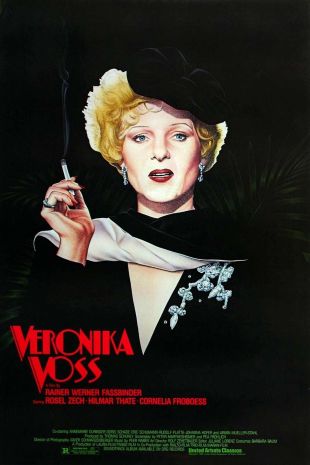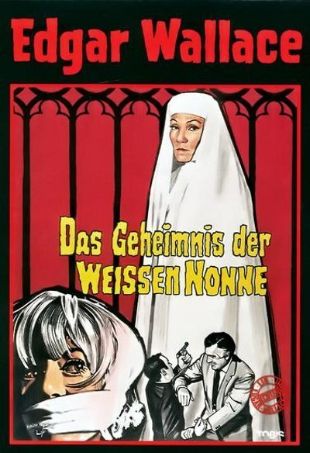A replacement, in many respects, for the Hollywood-bound Marlene Dietrich, beautiful and slightly exotic-looking Brigitte Horney was the daughter of noted psychiatrist Else Danielsen and grew up in some opulence in the Berlin suburb of Dahlem. A friendship with theater magnate Max Reinhardt led in 1930 to a role as a sales clerk in Robert Siodmak's Billy Wilder-scripted Abschied (1930) but Horney refused further film work in favor of the stage. (She was for more than a decade engaged by Berlin's Volksbühne theater.) Most fortuitously, however, she accepted the starring role of a waterfront girl in the highly popular Liebe, Tod und Teufel (Love, Death and the Devil, 1934), and a new star was born. Horney, in her inimitable husky voice, sang Theo Mackeben's leitmotif "So Oder ist das Leben " and critics and audiences alike compared her favorably to Dietrich.
Although her mother had escaped to New York, Horney opportunistically remained in the Third Reich, performing with the Volksbühne and starring in such popular Nazi-era films as Savoy-Hotel 217 (1936) and Das Mädchen von Fanö (The Girl From the Isle of Fanö, 1941). In 1943, she played Catherine the Great in one of the great debacles of the age, the gigantic super-production The Adventures of Münchhausen. Despite the fact that the news from the Eastern front was grim, no expense was spared and the Hollywood-style production later became a blot on the resumé of all concerned. With the suicide deaths of former costar Joachim Gottschalk and his Jewish wife, a traumatized Brigitte Horney began preparing for the inevitable and although she soldiered on in her own way -- filming Gustav Ucicky's prophetically titled Am Ende der Welt (The End of the World, 1944) while bombs were literally dropping around her -- she finally fled to Switzerland in early 1945. There were a couple of stage returns in the immediate postwar era, including a Swiss production of Jean-Paul Sartre's Les Mains Sales (1949), and she resettled in the United States in 1950. But Brigitte Horney was not forgotten and she returned to Germany for such television productions as Sartre's No Exit and the highly popular soap opera The Guldenburgs, on which she played the matriarch. In addition, she earned a supporting role in Rainer Werner Fassbinder's Veronika Voss (1981), a Sunset Boulevard pastiche probably based on the life of one of her contemporaries, the haunting Sybille Schmitz.
Although she never completely rivaled Marlene Dietrich's strange allure -- Nazi film production would not allow such self-indulgence -- Brigitte Horney was, in retrospect, much closer the real thing than the better remembered Dietrich successor, the equally husky-voiced Zarah Leander.


